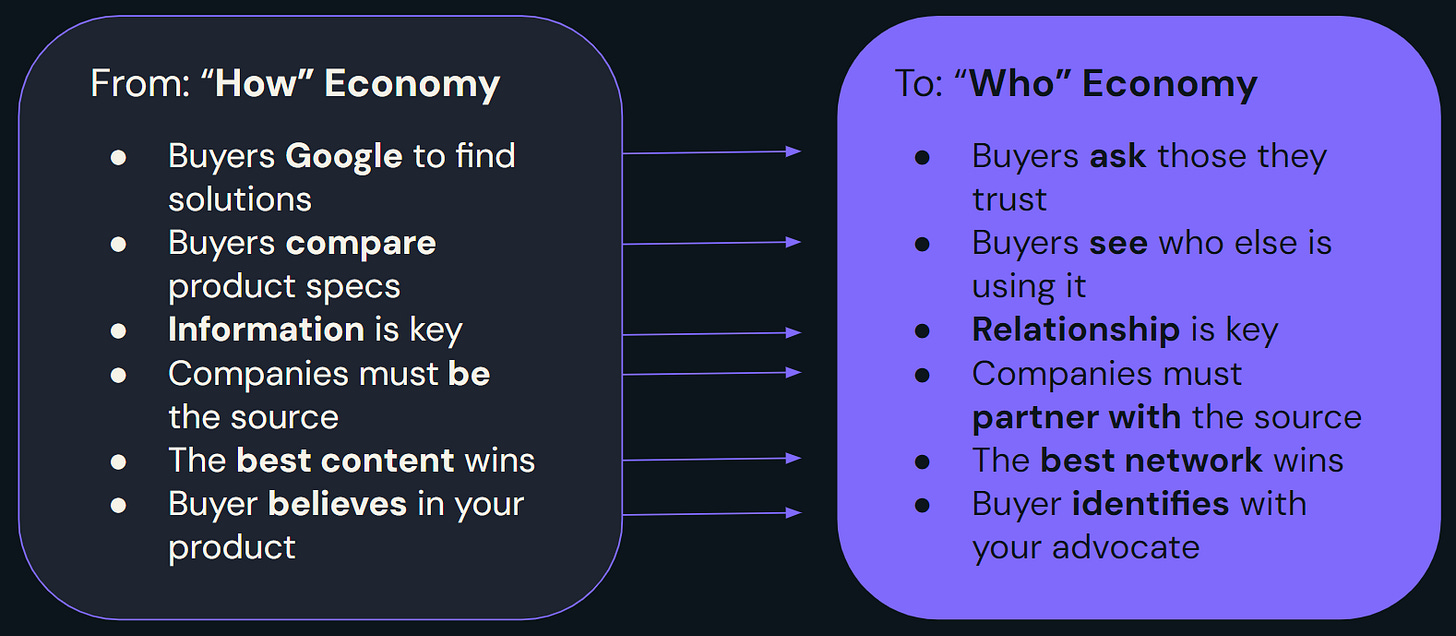I’ve seen a bunch of Tweets about Tucker Carlson saying that any economic system that produces lots of Dollar Stores is a bad system, because Dollar Stores are ugly, and ugliness is evil.
I think Tucker did himself no favors by labeling the economic system “libertarian capitalism” (or something similar), because now many who value individual liberty and free markets are annoyed, and many who love state power are using it as an “I told you so.”
Labels aside, I like some things about this sentiment. Other things about it trouble me.
What I like about it
Beauty is a virtue. I love that Tucker connects ugliness to evil.
Yes, aesthetic tests of righteousness can become dangerous, cult-like, or kooky (ask an Ayn Rand acolyte why tap dance is “the most moral form of dance”).
But damnit there is a connection between ugliness and evil. There just is. Go to just about any capital city in the US. Hang around the brutalist monstrosities there. If meandering the government monoliths of, say, Albany NY does not suck your soul dry, you might not have one.
Broken societies and systems produce ugliness. The physical state and the spiritual state are connected.
We should be cautious of Dorian Grays too. Beauty does not tell everything. Satan himself comes disguised as an angel of light. But these warnings exist precisely because they are unexpected exceptions. In the normal course of things, ugliness comes from internal rot, and beauty from alignment.
Now, the two things that trouble me about Tucker’s statement.
Thing one – misplaced blame
What system, exactly, produced Dollar Stores? Tucker used the “libertarian capitalism” label, which to me implies mostly free markets.
Did mostly free markets produce Dollar Stores?
It’s not so easy to figure these things out. While it’s true that no government agency mandated Dollar Stores into existence, it is also true that the economy is so burdened with taxes, regulation, and manipulation, that it’s damn-near impossible to tease out what aspects are the result of supply and demand, and what are responses to the threats of violence from the state.
The money supply is utterly manipulated. This affects the entire structure of production – what gets invested in, built, and maintained. The size and distribution of firms, workers, wages, spending and saving habits. Start to go down the monetary policy rabbit hole, and it’s easy to believe (not without justification) that nearly every unsavory aspect of society is the result of money manipulation.
What about the regulatory burdens imposed on businesses? Try opening and running a store legally. It’s ridiculous. The results in advantages for large nationwide chains who can centralize compliance costs.
Health care regulations and tax codes make health insurance artificially more attractive than other forms of compensation to both workers and employers, and big national companies have massive advantages in ability to provide these.
Access to capital, government subsidized highways, and too many other interventions to count all create artificial pressure on Dollar Store competitors and make Dollar Stores a more rational business model.
It is lack of economic freedom that has created this ugliness.
Tucker didn’t say this, but the implication that some form of regulation needs to curb markets and prevent Dollar Stores is not right or good. The largest government in the history of the world (at least by spending) with more regulatory bodies and laws than anyone can even comprehend has resulted in a world with tons of Dollar Stores.
In what world would giving more power to bureaucrats – the producers of the ugliest things in human history – reduce ugliness?
Public Choice theory is instructive here.
Thing two – the fatal conceit
You’ll notice the above critique grants Tucker’s premise – that Dollar Stores are in fact ugly.
We shouldn’t accept this so easily. At least not without asking the only question that matters when analyzing social and economic systems:
Compared to what?
Compared to an imagined utopia, Dollar Stores are hideous and unneeded. But utopia is not on the table, only reality is.
There is a Chesterton’s Fence sort of thing going on here. When you encounter a Dollar Store, instead of assuming it’s grotesque and needs to be killed, first try to understand why it’s there. It emerged for a reason, and it persists for the time because enough people voluntarily prefer it to the alternatives to keep it alive.
Do you know that they are wrong? Are you so confident as you drive by that that Dollar Store is aiding evil and not helping to dispel it? If you could ban Dollar Stores, what would fill the various vacuums left behind? Would it be better?
Not only is there a dangerous arrogance about the complex role Dollar Stores might be playing economically, there is an aesthetic arrogance too, I suspect borne less out of ill-will than lack of experience.
The reality for many rural areas is that Dollar Stores are far from ugly. For many, they are the best example of beauty for miles in any direction. I’m serious.
I lived for a time in a rural town in Tennessee. It was rough. Ugliness was everywhere. Physical ugliness, and deep, emotional and spiritual ugliness. The kind of thing that comes from generations of slow descent into alcoholism, welfare, abuse, and broken homes.
Dollar General had a store it seemed every ten miles. They were an oasis. I am not exaggerating.
First, the convenience was a massive boost to quality of life and happiness. The alarming array of affordable stuff neatly crammed into these tiny, clean, well-lit stores was incredible. Medicine, groceries, school supplies, toys, shampoo, greeting cards, jumper cables, clothes. Somehow, whenever you needed something they had it.
The fact that these items were produced in every corner of the globe by complete strangers and made their way to me, in the middle of nowhere and in need of Cumin for Sunday chili and a pair of work gloves for my son’s new landscaping job, is damn-near miraculous. We are perishing for lack of wonder, as Chesterton said. Leonard Read’s I, Pencil is on full display at these stores.
That is beautiful. The spontaneous order of the invisible hand, delivering what I need with a smile.
But even on a more mundane aesthetic level, unless you’ve lived in some of these places, you have no idea how a Dollar General can be a reprieve from ugliness, a salve for eye sores. That should not be overlooked.
A drop of humility, a dash of wonder, and a pinch of love
We’ve got to be careful. As Hayek said, “The curious task of economics is to demonstrate to men how little they know of what they imagine they can design.”
Dollar Stores are partially a result of overblown nasty government.
But even enveloped and empowered by black oily government tentacles of death, there’s some part of Dollar Stores that is an expression of human freedom, cooperation, and even beauty. They are, at times, the rose in the proverbial concrete. The concrete is mostly a government creation, but the rose only needs the tiniest spark of freedom to break through.
Would the rose be more beautiful in a well-tended garden, or beautiful wild wood?
Of course. But unless and until you are going to start breaking away the concretized tyranny surrounding it, don’t blame the rose and certainly don’t pluck it. It’s a tiny, somewhat pathetic picture of what things could be. Don’t take that from those who have little else.
We shouldn’t ever be content with things as they are. We should be discontent. We should also be optimistic. We should forge ahead, always looking to improve our own lives and the lives of our fellow man.
But never on a whim, or at the point of a gun.
Beauty emerges in unlikely places. But it starts from the fertile soil of humble hearts.
Like this:
Like Loading...

